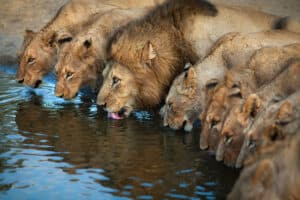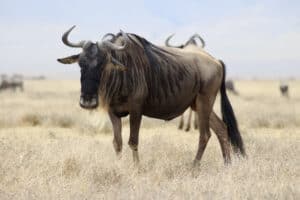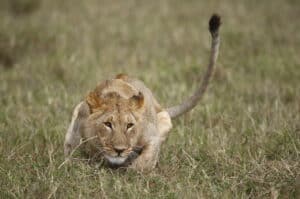There’s really no shortage of incredible things to see in the wild. Nature always has a way of making our jaws drop. Whether it’s sheer beauty, the circle of life, or an epic animal encounter, there are endless possibilities in the outside world.
Click to Watch the Amazing Video Below
For example, what if an antelope was in a shallow body of water cooling off when suddenly a sneaky crocodile made an appearance? Well, just that happened, and we have the video below to prove it!
An antelope was enjoying hydrating itself and steering clear of a nearby lion. See, a lioness was on the shore and keeping a close eye on the antelope, waiting to make the right move. That was until a crocodile spooked both animals!
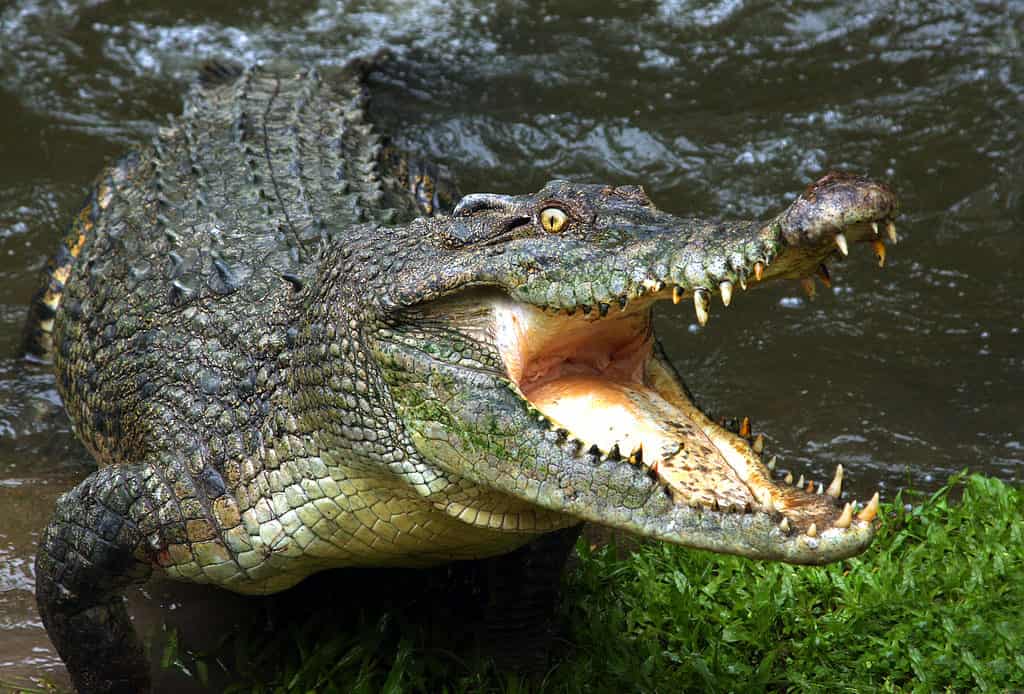
Crocodiles can turn and attack with lightening speed
©Audrey Snider-Bell/Shutterstock.com
The antelope made an incredible escape onto the land where the lioness was already ready to run. The prey and predator made eye contact, and both decided to run from the hungry croc. Who knows if the lion ends up chasing down the antelope, but it’s a sight to see nonetheless!
How Do Crocodiles Hunt?
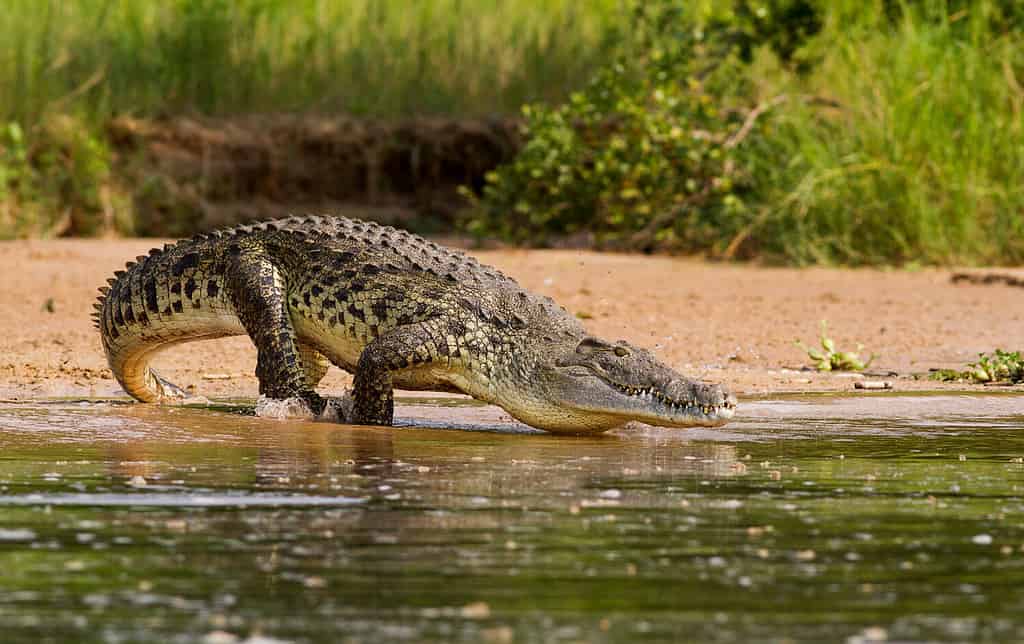
©diegooscar01/Shutterstock.com
Crocodiles are skilled hunters that use a variety of tactics to capture their prey. One common strategy is to follow their target covertly while hunting from the water, waiting for the perfect opportunity to strike. Some crocs will wait patiently for their prey to come and drink or bathe near the water’s edge, using their excellent camouflage skills to blend in with their surroundings.
Despite being formidable predators in their own right, even large mammals like lions, antelopes, and humans can fall victim to these powerful reptiles. With strong jaws and razor-sharp teeth, crocodiles are able to overpower even the largest of prey animals.
Once a crocodile has captured its meal, it will typically drag it into the water, where it can be drowned before being consumed. This method of killing is not only more effective than trying to rip apart a struggling animal on land but also allows the predator access to its food source without having other scavengers potentially steal away its prize.
Overall, despite living in an environment full of danger and competition from other predators such as sharks and hippos, among others, crocodiles remain one of nature’s most successful hunters, thanks largely due in part because they’re perfectly adapted for life both on land as well as underwater.
What Do Lions Eat?
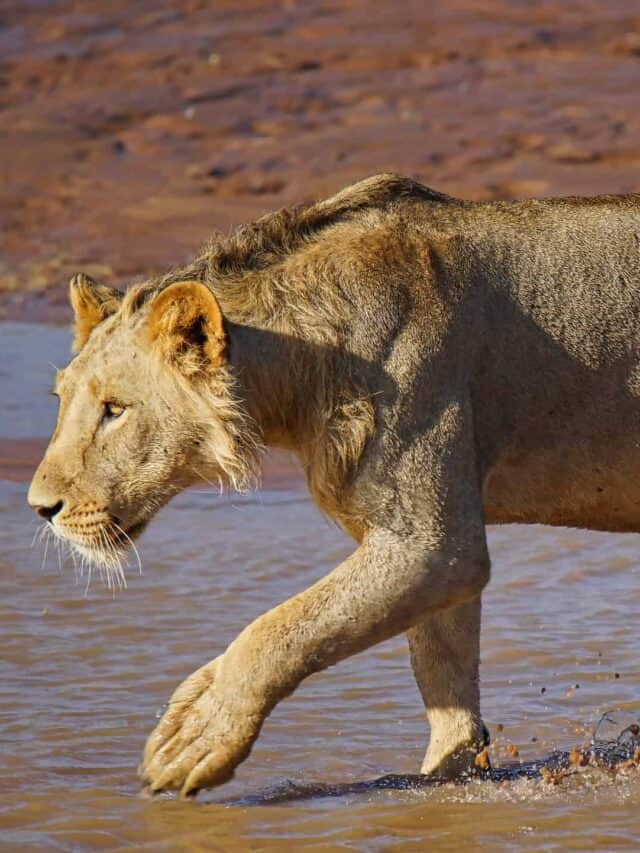
Lions will enter the water to capture prey.
©twabian/Shutterstock.com
As the apex predator of the African savanna, lions are known for their ability to take down large animals weighing up to 1,000 pounds. Their primary prey consists of herbivores like zebras and buffaloes, which provide a significant source of protein and nutrients for these majestic felines. However, during times when big game is scarce or difficult to hunt, lions have been observed preying on an array of smaller creatures, such as rodents and reptiles, in order to survive.
Interestingly enough, lions also display opportunistic behavior by scavenging off the carcasses left behind by other predators, such as leopards and hyenas. This allows them access to additional sources of food without having to expend too much energy hunting themselves.
It is important to note that despite their reputation as fierce hunters, not all hunts end successfully for these big cats. Studies have shown that only about one out of every five lion hunts results in a successful kill – highlighting just how challenging it can be for even the most skilled hunter in the animal kingdom.
How Fast Can Antelope Run?
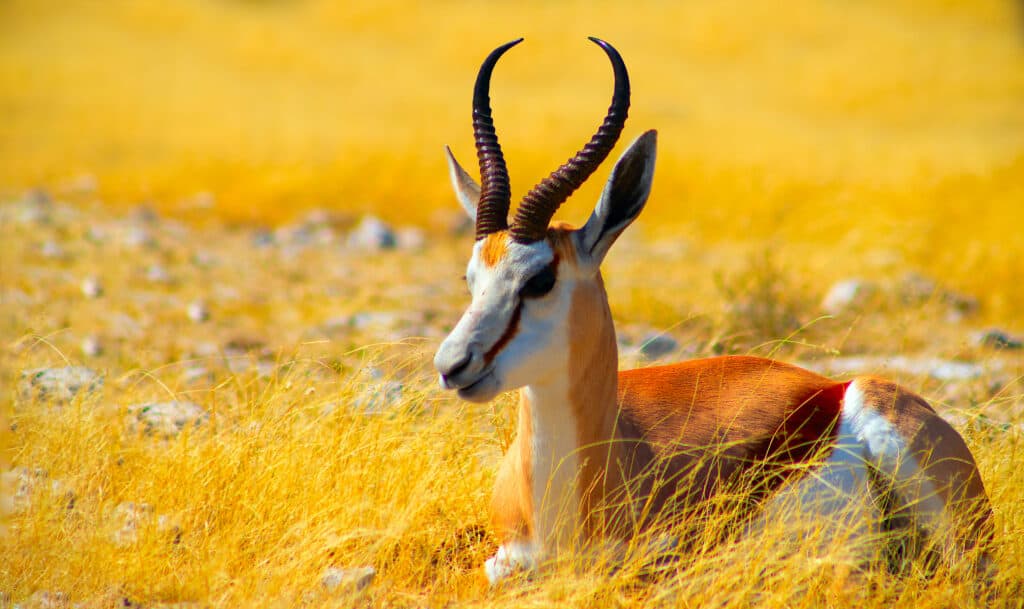
Antelopes have to be fast. They have many predators.
©Yulia Lakeienko/Shutterstock.com
The antelope in the video below shows just how sporty these creatures can be. An antelope can run at speeds up to 60 miles an hour! Although crocodiles are sneaky, there’s no way they can keep up with these speedy animals.
Depending on the species of crocodile, they can run up to 22 miles per hour. It’s safe to say that an antelope has a good chance of getting away as long as the croc doesn’t get a grip on its spindly legs.
Lions give antelopes a run for their money. In short bursts, these large cats can sprint up to 50 miles per hour. Either way, what happens in the video below is a peculiar moment that will leave you scratching your head in disbelief!
The photo featured at the top of this post is © Shawn Levin/Shutterstock.com
Thank you for reading! Have some feedback for us? Contact the AZ Animals editorial team.




